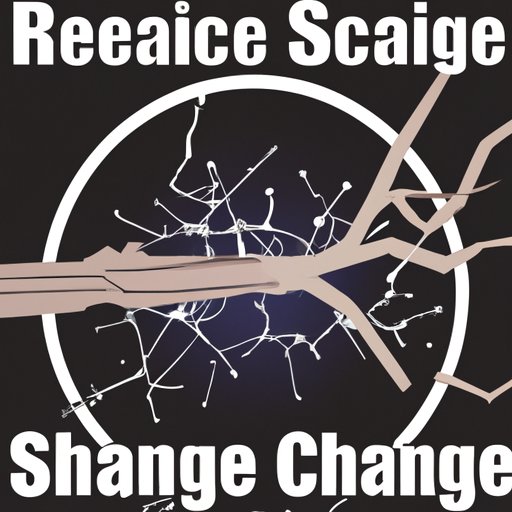Introduction
Real science is an expansive term that encompasses a variety of scientific disciplines. It has been defined as “the systematic study of the structure and behavior of the physical and natural world through observation and experiment” (Oxford Languages). This definition implies that real science involves gathering data and evidence to form hypotheses, testing those hypotheses, and then drawing conclusions based on the results.
The purpose of real science is to uncover the secrets of the universe and gain a better understanding of our physical environment. By doing so, we can use this knowledge to create new technologies, advance medical treatments, and protect the Earth’s natural resources.
Exploring the History of Real Science
The origins of real science can be traced back to ancient civilizations such as Egypt, Mesopotamia, India, and China. Early philosophers and scientists from these cultures began to ask questions about the natural world and develop theories to explain the phenomena they observed.
In the 17th century, the emergence of the scientific method marked a major milestone in scientific progress. This method involves making observations, forming hypotheses, designing experiments, collecting data, and analyzing the results. The scientific method allowed scientists to test their theories and draw more accurate conclusions.
During this time, religion also played a significant role in scientific thought. Many scientists believed that their discoveries were made possible by God’s will and that their findings could be used to further understand the divine.
Examining the Different Branches of Real Science
Today, real science encompasses a wide range of disciplines. Some of the most common branches are biology, chemistry, physics, astronomy, and earth science.
Biology is the study of living organisms, including plants, animals, and microorganisms. It focuses on the structure and function of cells, evolution, genetics, and ecology.
Chemistry is the branch of science concerned with the composition, structure, and properties of matter. It involves studying chemical reactions, analyzing the elements and compounds that make up different substances, and researching the ways in which matter interacts.
Physics is the study of energy, motion, and forces. It explores the fundamental laws of nature, such as gravity and thermodynamics, as well as the behavior of particles and waves.
Astronomy is the branch of science that deals with celestial bodies, such as stars, planets, comets, and galaxies. It examines the origin and evolution of the universe, as well as the development of our own Solar System.
Earth science is the study of the planet we live on. It includes topics like geology, oceanography, meteorology, and hydrology. It investigates the processes that shape our planet, such as plate tectonics, erosion, and climate change.

Investigating the Controversies Surrounding Real Science
Real science has been at the center of some of the most contentious debates in modern history. One of the most controversial issues is the debate between creationism and evolution. Creationists believe that humans were created by God and that evolution occurs only within species, while evolutionists argue that all life forms have evolved over time through natural selection.
Another hot-button issue is climate change. Although the majority of scientists agree that human activity is causing global temperatures to rise, there are still many people who deny this fact.
Alternative medicine is yet another topic that has sparked controversy in recent years. Proponents of alternative medicine claim that it is more effective than conventional medicine, while skeptics point to the lack of scientific evidence supporting its efficacy.
Understanding the Impact of Real Science on Society
Real science has had a profound impact on our society. Technological advancements have improved our quality of life and enabled us to explore space and communicate with each other across vast distances. Medical breakthroughs have extended our lifespans and enabled us to treat previously incurable diseases. And environmental protection initiatives have helped preserve our planet’s fragile ecosystems.
Real science has also changed the way we interact with the world around us. Thanks to advances in robotics, computers, and artificial intelligence, we now have the ability to automate tedious tasks and make decisions faster than ever before.

Analyzing the Role of Technology in Real Science
Technology has become increasingly important in real science. Computers are used to store and analyze large amounts of data, automate lab experiments, and even design new drugs. Robotics is being used to explore other planets and aid in medical procedures. And 3D printing is allowing scientists to create models of molecules and simulate complex biological systems.
These technologies are changing the way scientists conduct research and opening up new possibilities for exploration. As computer processing power continues to increase, scientists will be able to tackle even more ambitious projects.

Identifying the Challenges Faced by Real Science Today
Despite the progress made in real science, there are still many challenges facing the field. One of the biggest issues is funding. Research projects require significant financial resources, but government budgets are often limited.
Another problem is the lack of diversity in STEM fields. Women, minorities, and people from low-income backgrounds continue to be underrepresented in real science.
Finally, there is the issue of misinformation. Misleading information can spread quickly on social media platforms, leading to false conclusions and public misunderstanding.
Conclusion
Real science is a broad term that encompasses a variety of scientific disciplines. Its history stretches back centuries, while its branches range from biology to astronomy. It has been at the center of some of the most divisive debates in modern history, and its impact on society is undeniable. Technology has become an integral part of real science, and the field faces many challenges today. But despite these obstacles, real science continues to push the boundaries of knowledge and open up new possibilities for exploration.
(Note: Is this article not meeting your expectations? Do you have knowledge or insights to share? Unlock new opportunities and expand your reach by joining our authors team. Click Registration to join us and share your expertise with our readers.)
